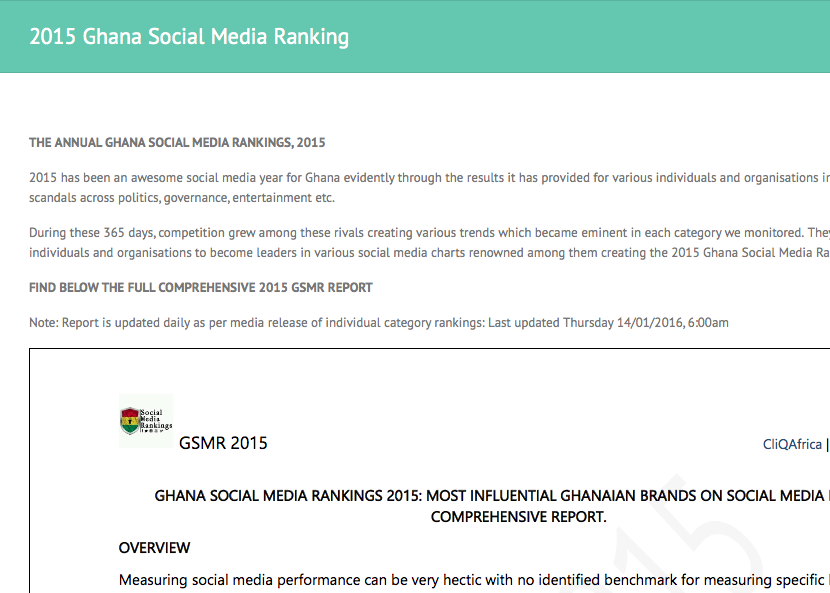
I have read an excellent social media report: 2015 Ghana Social Media Rankings was launched by CliqAfrica in collaboration with Avance Media, Dream Ambassdors, TV3, 233livenews, Cape 360, Enter Ghana and Gonewsgh. The report summarized social media follows, likes, and interactions on Facebook, Twitter, Instagram and YouTube for many different sectors such as hotels, telcos, public figures and more.
My top insights were:
- Top in the Ghanaian personalities category was Yvonne Nelson, an actress who was behind the #DumsorMustStop vigil. This possibly shows that engaging in political issues is, despite what many say, good for your celebrity brand.
- If to judge politics by the social media ranking of “public figures”, Mahama is more popular than Akuffo-Addo.
- University of Ghana ranked well in both the “brand” category and “university” category, but as the breakdown was shown, its rival the Kwame Nkrumah University of Science and Technology had many more likes both on Facebook and on Twitter (where University of Ghana is not even present). What UG scored on was engagements, but I wonder…was that weighting fair in this case?
- Telco Airtel came out on top, although MTN and Vodafone have larger market shares. Similar to above, the ranking came from engagements.
- Radio stations JoyFm and CitiFm came out neck to neck with Joy on top. Similar to the telco situation, Joy is seen as the market leader.
I also liked that runners up for next year were listed (Ashesi!) and that transparent tables of numbers were included for each category.
Reading the social media report, I actually wish I had been involved in it as I thought it to be well-executed and timely. Now brands and organisations in Ghana can see how they rank in social media compared to others in their sector. I believe social media trends can also at times precede on the ground happenings. Brands not present in the report should see this as a wake-up call.




